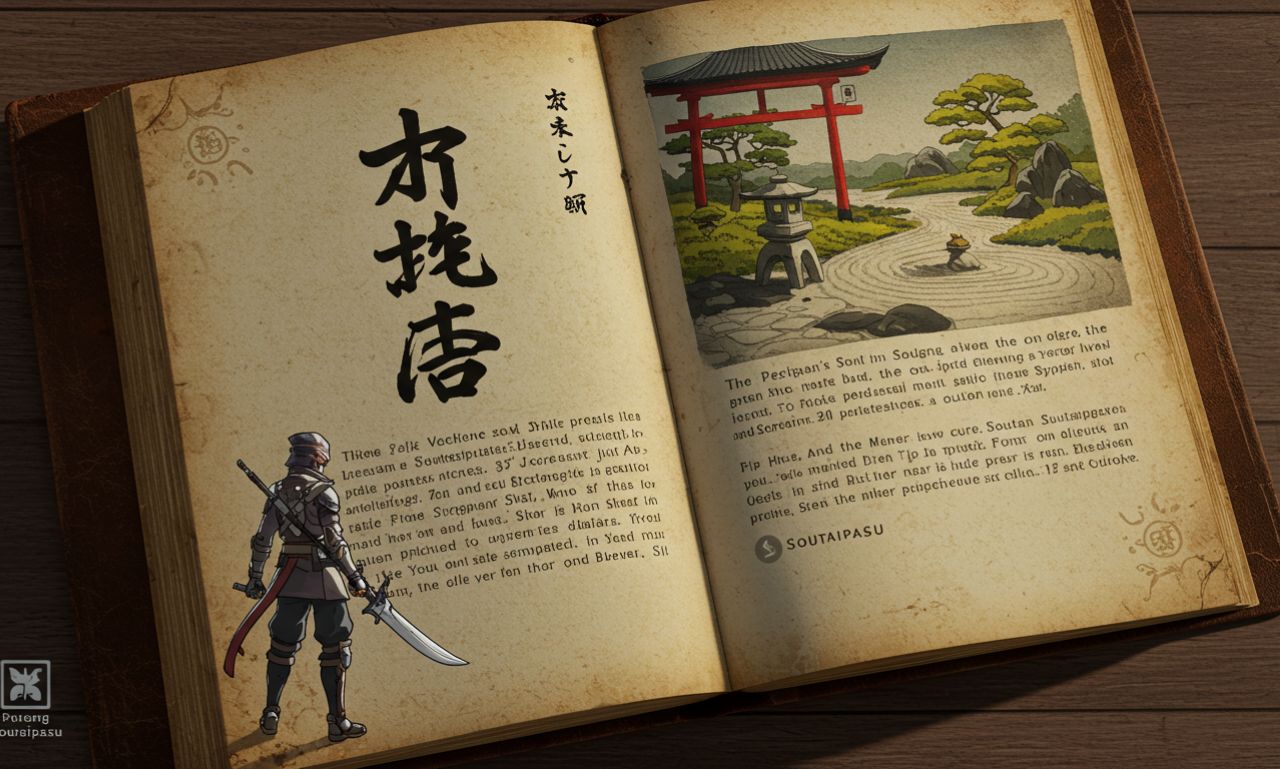The word Soutaipasu has been making its way into cultural conversations, online forums, and creative projects. It carries a mysterious and layered identity that sparks curiosity. While not a mainstream term, its blend of Japanese linguistic roots and Western loanwords gives it symbolic weight.
In this article, we will explore:
-
The linguistic origins of Soutai pasu.
-
Its philosophical meanings and symbolism.
-
How Soutai pasu appears in gaming, art, and digital culture.
-
The modern applications of the term in online spaces.
-
Frequently asked questions (FAQs) to clarify its usage.
By the end, you’ll understand why Soutai pasu resonates with themes of relativity, passing, and mutual exchange.
Linguistic Origins of Soutaipasu
To understand the depth of Soutaipasu, we must break it down into its components.
-
Soutai (相対): A Japanese term that means relative, mutual, or opposing. It reflects balance, contrast, and interdependence.
-
Pasu (パス): A borrowed word from English “pass,” widely used in Japanese to mean skip, transfer, or give permission.
When combined, Soutai pasu translates roughly to “relative pass” or “mutual skip.” While the direct meaning is simple, the blended term allows for layered interpretations across different fields.
Soutaipasu in Philosophy and Symbolism
1. Relativity of Choices
Every decision involves passing up one option to pursue another. Soutai pasu symbolizes this relativity, where no choice is absolute—everything depends on context.
2. Mutual Understanding
The word also reflects the idea of mutuality. Just as two parties may agree to pass or skip under certain conditions, Soutai pasu symbolizes fairness and cooperation.
3. Flow of Life
Life is a constant exchange—events pass into each other, and experiences shape new outcomes. Soutaipasu represents this ongoing flow.
Philosophically, Soutai pasu resonates with themes of balance, exchange, and interconnection.
Soutaipasu in Gaming Culture
In gaming communities, Soutaipasu has taken on practical and symbolic meanings:
-
Relative Passing in Multiplayer Games: Players skip turns or pass resources under agreed conditions, maintaining fairness.
-
Strategic Sacrifice: Choosing to pass up a move for a greater advantage later mirrors the “relative pass” concept.
-
Cooperation: Many online games use passing systems to encourage collaboration, reflecting the spirit of Soutai pasu.
Gamers often appreciate the term because it reflects both strategy and balance, essential aspects of competitive play.
Soutaipasu in Creative Works
1. Character Names
Writers and manga artists use Soutai pasu as a mysterious or symbolic name. Its hybrid form makes it stand out.
2. Titles for Projects
Digital creators, musicians, and designers sometimes adopt Soutai pasu for blogs, albums, or art collections. It suggests originality and depth.
3. Symbolism in Storytelling
In stories, Soutai pasu can embody duality, relativity, or the balance between gain and loss.
For creative professionals, Soutai pasu offers both uniqueness and flexibility—two qualities highly valued in artistic expression.
In Modern Online Usage
Today, Soutai pasu is found across different online spaces:
-
Usernames and Handles: Its originality makes it appealing for personal branding.
-
Domain Names and Tags: Websites use it for niche projects to stand out.
-
Discussion Forums: Soutai pasu sparks debates about meaning, origin, and usage.
Its versatility ensures that Soutai pasu adapts to different digital communities—whether philosophical, artistic, or casual.
The Symbolic Themes of Soutaipasu
Several universal themes are tied to Soutai pasu:
-
Balance and Relativity – Life and choices are never absolute. Everything is contextual.
-
Passing and Flow – Progress requires passing from one stage to the next.
-
Mutual Exchange – Cooperation and shared understanding are central to growth.
-
Mystery and Identity – Its rare usage makes it a marker of originality.
These symbolic associations explain why Soutaipasu appeals to diverse communities.
Why Soutaipasu Attracts Attention
There are three key reasons Soutai pasu captures curiosity:
-
Mystery: Because it isn’t a mainstream word, people want to explore its meaning.
-
Flexibility: It can be used in philosophy, gaming, art, or personal branding.
-
Creativity: Soutaipasu has a unique ring to it, making it memorable.
As online culture evolves, rare hybrid terms like Soutaipasu often gain niche popularity.
SEO Value of Soutaipasu
For SEO and digital branding, Soutaipasu offers several advantages:
-
Low Competition Keyword: Since it is not widely used, ranking for “Soutai pasu” is achievable.
-
Unique Identity: Ideal for businesses, creators, or blogs that want to stand out.
-
Cultural Appeal: Combines linguistic depth with modern symbolism.
Using Soutai pasu strategically in branding and online content can establish originality and authenticity.
FAQs About Soutaipasu
1. What does Soutaipasu mean?
Soutaipasu is a hybrid word combining Japanese “soutai” (relative/mutual) and “pasu” (pass). It can mean relative pass, mutual exchange, or conditional skip.
2. Where is Soutaipasu used?
It appears in philosophy, gaming culture, creative works, usernames, and online branding.
3. Is Soutaipasu a Japanese word?
Partly. “Soutai” is Japanese, while “pasu” is an English loanword. Together, they form a hybrid expression.
4. Why is Soutaipasu popular online?
Its mystery, flexibility, and symbolic depth make it attractive for forums, usernames, and creative projects.
5. Can Soutaipasu be used in business or branding?
Yes. Its uniqueness makes it suitable for niche projects, blogs, art collections, and creative businesses.
Conclusion
Soutai pasu may not be a common term, but its layered identity makes it significant in multiple contexts. From philosophy and gaming to creative expression and online branding, Soutai pasu represents relativity, balance, and exchange.
For individuals, it can serve as a symbol of thoughtful choices. For creators, it offers a powerful tool of originality. For SEO, it is a low-competition keyword with high branding potential.
In a world where words shape identity, Soutai pasu stands as a reminder that meaning is both relative and evolving—just like the choices we pass and the paths we take.
